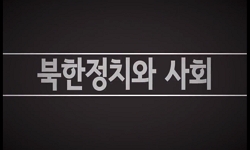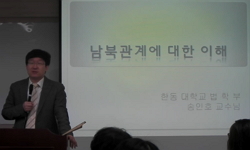1990년대 들어오면서 급증하기 시작한 북한이탈주민들은 분단시대의 남한사회를 새롭게 성찰할 수 있는 귀중한 기회를 제공하고 있다. 북한이탈주민이 이 땅에 정착한 것은 통일을 준비하는...
http://chineseinput.net/에서 pinyin(병음)방식으로 중국어를 변환할 수 있습니다.
변환된 중국어를 복사하여 사용하시면 됩니다.
- 中文 을 입력하시려면 zhongwen을 입력하시고 space를누르시면됩니다.
- 北京 을 입력하시려면 beijing을 입력하시고 space를 누르시면 됩니다.
https://www.riss.kr/link?id=A77024214
- 저자
- 발행기관
- 학술지명
- 권호사항
-
발행연도
2008
-
작성언어
Korean
-
주제어
북한이탈주민 ; 지방자치단체 ; 남한 ; 북한 ; 통일 ; North Korean Defectors ; Local Governments ; North Korea ; South Korea ; Unification
-
등재정보
KCI등재후보
-
자료형태
학술저널
- 발행기관 URL
-
수록면
187-222(36쪽)
-
KCI 피인용횟수
16
- 제공처
- 소장기관
-
0
상세조회 -
0
다운로드
부가정보
국문 초록 (Abstract)
북한이탈주민들이 급증하기 시작 이래 발생한 다양성으로 인하여 정부의 획일적인 노력만으로 효과적인 통합을 기대하기 어려워짐에 따라 지방과 협력체계가 구축되기 시작하였다. 중앙정부의 주도로 추진된 북한이탈주민의 지방화는 중앙정부의 정책을 지방적 차원에서 실천하는 역할분담의 체계로 나타나고 있었다. 따라서 북한이탈주민의 지방화가 추진되기 시작한 이래 거의 10여년이 경과하고 있음에도 불구하고 지방은 여전히 중앙정부의 정책적 수단으로서의 지위에서 벗어나지 못하고 있는 것으로 나타나고 있다.
남한의 정부와 국회는 북한이탈주민의 보호와 정착지원 등과 같은 문제는 통일정책의 맥락에서 다루어져야 한다는 관점에서 통일원에게 주무부서로서의 권한과 역할을 부여하고 있다. 따라서 북한이탈주민 문제를 다루는 과정에서 지방정부는 중앙정부의 정책의지를 관철하는 하부수단으로 위치에서 벗어나기 어려운 구조적 한계를 안고 있다. 지방자치단체는 북한이탈주민문제에 관한 주도권을 행사하지 못하고 있다. 지방자치단체는 북한과의 교류협력사업에 대해서는 적극성을 보이고 있음에도 불구하고, 북한이탈주민문제에 대해서는 소극적 자세에서 벗어나지 못하고 있다.
지방자치단체가 북한이탈주민들에 대하여 효과적인 정책을 추진해 나갈 수 있는 체계적인 정책추진 환경은 여전히 미비하다. 지방자치단체는 주로 중앙정부에 의해 결정된 정책사항을 집행하는 역할만 하고 있다. 북한이탈주민을 위한 제도는 지속적으로 개선되고 있지만, 제도개선의 성과를 기대할 수 있는 운영과정에서는 상당한 문제점이 발견되고 있다.
그동안 중앙정부나 지방정부에 의해 추진되고 있는 북한이탈주민들에 관한 정책은 북한이탈주민을 위한 정책이 아니라 남한사회에 통합시키는 데에만 역점을 두고 추진되었다는 특징을 갖고 있다. 이들에 대한 정책적 관심도 주로 경제적 차원에 집중하는 특징을 보여주고 있다. 그럼에도 불구하고 이들은 남한사회에서도 경제적 약자로서의 지위를 벗어나는데 커다란 어려움을 겪고 있는 것으로 나타나고 있다. 북한이탈주민들을 한국사회에 통합시키려는 그간의 노력은 절반의 성공에 불과하다.
북한이탈주민 가운데에는 비교적 발빠르게 적응하는 사람들도 많지만, 상당수가 여전히 부적응으로 인한 고통과 어려움에 직면하고 있다. 뿐만 아니라 북한이탈주민을 상대하는 남한사람들도 이들에 대한 편견의 문화에서 벗어나지 못하고 있다. 정치경제적 접근방법도 중요하지만, 서로에 대한 이해의 폭을 넓혀 나갈 수 있는 문화의 통합이 절실하게 필요한 시점이다. 이러한 문제의 해결을 위한 대안은 최근 세계화시대의 자유로운 인적 이동에 따라 대두되고 있는 다민족, 다인종시대의 다문화 패러다임이 절실하게 요구되고 있다고 볼 수 있다.
북한이탈주민들은 체제가 다른 양쪽 사회를 경험했기 때문에 이들을 통일자산이라는 국민의 인식 변화가 무엇보다 필요하다. 북한이탈주민들은 남한사회에 부담을 주는 존재가 아니라 남한의 부담을 덜어주는 동시에 북한사회를 밑으로부터 변화시키는 중요한 역할을 하고 있다는 긍정적인 시각으로 바라볼 필요가 있다.
1990년대 들어오면서 급증하기 시작한 북한이탈주민들은 분단시대의 남한사회를 새롭게 성찰할 수 있는 귀중한 기회를 제공하고 있다. 북한이탈주민이 이 땅에 정착한 것은 통일을 준비하는 우리 민족에게는 좋은 기회를 제공해 준 것이다. 본격적인 통일에 앞서 소수와 함께 민족통합을 미리 준비하는 의미가 있기 때문이다.
북한이탈주민들이 급증하기 시작 이래 발생한 다양성으로 인하여 정부의 획일적인 노력만으로 효과적인 통합을 기대하기 어려워짐에 따라 지방과 협력체계가 구축되기 시작하였다. 중앙정부의 주도로 추진된 북한이탈주민의 지방화는 중앙정부의 정책을 지방적 차원에서 실천하는 역할분담의 체계로 나타나고 있었다. 따라서 북한이탈주민의 지방화가 추진되기 시작한 이래 거의 10여년이 경과하고 있음에도 불구하고 지방은 여전히 중앙정부의 정책적 수단으로서의 지위에서 벗어나지 못하고 있는 것으로 나타나고 있다.
남한의 정부와 국회는 북한이탈주민의 보호와 정착지원 등과 같은 문제는 통일정책의 맥락에서 다루어져야 한다는 관점에서 통일원에게 주무부서로서의 권한과 역할을 부여하고 있다. 따라서 북한이탈주민 문제를 다루는 과정에서 지방정부는 중앙정부의 정책의지를 관철하는 하부수단으로 위치에서 벗어나기 어려운 구조적 한계를 안고 있다. 지방자치단체는 북한이탈주민문제에 관한 주도권을 행사하지 못하고 있다. 지방자치단체는 북한과의 교류협력사업에 대해서는 적극성을 보이고 있음에도 불구하고, 북한이탈주민문제에 대해서는 소극적 자세에서 벗어나지 못하고 있다.
지방자치단체가 북한이탈주민들에 대하여 효과적인 정책을 추진해 나갈 수 있는 체계적인 정책추진 환경은 여전히 미비하다. 지방자치단체는 주로 중앙정부에 의해 결정된 정책사항을 집행하는 역할만 하고 있다. 북한이탈주민을 위한 제도는 지속적으로 개선되고 있지만, 제도개선의 성과를 기대할 수 있는 운영과정에서는 상당한 문제점이 발견되고 있다.
그동안 중앙정부나 지방정부에 의해 추진되고 있는 북한이탈주민들에 관한 정책은 북한이탈주민을 위한 정책이 아니라 남한사회에 통합시키는 데에만 역점을 두고 추진되었다는 특징을 갖고 있다. 이들에 대한 정책적 관심도 주로 경제적 차원에 집중하는 특징을 보여주고 있다. 그럼에도 불구하고 이들은 남한사회에서도 경제적 약자로서의 지위를 벗어나는데 커다란 어려움을 겪고 있는 것으로 나타나고 있다. 북한이탈주민들을 한국사회에 통합시키려는 그간의 노력은 절반의 성공에 불과하다.
북한이탈주민 가운데에는 비교적 발빠르게 적응하는 사람들도 많지만, 상당수가 여전히 부적응으로 인한 고통과 어려움에 직면하고 있다. 뿐만 아니라 북한이탈주민을 상대하는 남한사람들도 이들에 대한 편견의 문화에서 벗어나지 못하고 있다. 정치경제적 접근방법도 중요하지만, 서로에 대한 이해의 폭을 넓혀 나갈 수 있는 문화의 통합이 절실하게 필요한 시점이다. 이러한 문제의 해결을 위한 대안은 최근 세계화시대의 자유로운 인적 이동에 따라 대두되고 있는 다민족, 다인종시대의 다문화 패러다임이 절실하게 요구되고 있다고 볼 수 있다.
북한이탈주민들은 체제가 다른 양쪽 사회를 경험했기 때문에 이들을 통일자산이라는 국민의 인식 변화가 무엇보다 필요하다. 북한이탈주민들은 남한사회에 부담을 주는 존재가 아니라 남한의 부담을 덜어주는 동시에 북한사회를 밑으로부터 변화시키는 중요한 역할을 하고 있다는 긍정적인 시각으로 바라볼 필요가 있다.
다국어 초록 (Multilingual Abstract)
Due to the variety created along with the rapid increase of defectors, the monolithic effort of the national government no longer serves as an effective means of integrating defectors to South Korean society, so that there have been established the system of cooperation with local governments. The localization of defectors conducted by the national government appears a way of role distribution, with its policy being implemented in the local. Despite the localization policy over a decade, local governments are still under the control of the national government, without moving beyond the position as a menas of implementing national policies.
The South Korean government and the congress have bestowed authority and responsibility to the Ministry of National Unification in terms that the matters like safety and settlement of defectors should be handled in line with unification policy. Thus the local governments, in dealing with the matters of defectors, have their own structural limitation as a supplementary means of implementing the policy of the national government. The local governments do not have authority and control over the matters of defectors. While being active in business cooperation with North Korea, they come to take a passive attitude toward the matters of defectors.
The local governments suffer lack of institutional environments to carry out the policies for defectors effectively. They merely take the role of executing the policies determined by the national government. Although the system for defectors has gradually improved, there arise significant problems in the process of operating the policy where one can expect the desired effects of the improved system.
It is true that the policies for defectors, conducted by the national government and the local governments, have focused only on the integration of defectors to South Korean society. The line of policies has also been directed toward the financial support for the defectors. Nonetheless the defectors have difficulties in working themselves out of the low-class economic status. All the efforts so far for integrating North Korean defectors to South Korean society remain a half victory.
While some defectors quickly adjust themselves to South Korean society, most defectors come to face troubles and difficulties in their adjustment. In addition, there remains still the prejudice of South Korean people toward the North Korean defectors. The political and economic approaches are meaningful; however there should be the cultural integration that helps broaden the range of mutual understanding. One alternative solution to such a problem is to set up a multi-cultural paradigm required in a multi-national, multi-ethnic society which has been emerged recently by the free migration of people in the age of globalization.
Because the defectors have experienced two different societies, our perception about them should be changed as an asset for unification. We need to view them from a positive perspective in that they take a role of changing North Korean society from the root at the same time relieving a burden of our society rather than put a burden on our society.
The rapid increase of defectors from North Korea since 1990 has provided a chance to take a fresh look at the South Korean society in the time of national division. The settlement of North Korean defectors in the land of South Korea gives a good oppor...
The rapid increase of defectors from North Korea since 1990 has provided a chance to take a fresh look at the South Korean society in the time of national division. The settlement of North Korean defectors in the land of South Korea gives a good opportunity to Korean people preparing for unification. This puts a special meaning on their effort to prepare with minority for national unification before the full-scale unification.
Due to the variety created along with the rapid increase of defectors, the monolithic effort of the national government no longer serves as an effective means of integrating defectors to South Korean society, so that there have been established the system of cooperation with local governments. The localization of defectors conducted by the national government appears a way of role distribution, with its policy being implemented in the local. Despite the localization policy over a decade, local governments are still under the control of the national government, without moving beyond the position as a menas of implementing national policies.
The South Korean government and the congress have bestowed authority and responsibility to the Ministry of National Unification in terms that the matters like safety and settlement of defectors should be handled in line with unification policy. Thus the local governments, in dealing with the matters of defectors, have their own structural limitation as a supplementary means of implementing the policy of the national government. The local governments do not have authority and control over the matters of defectors. While being active in business cooperation with North Korea, they come to take a passive attitude toward the matters of defectors.
The local governments suffer lack of institutional environments to carry out the policies for defectors effectively. They merely take the role of executing the policies determined by the national government. Although the system for defectors has gradually improved, there arise significant problems in the process of operating the policy where one can expect the desired effects of the improved system.
It is true that the policies for defectors, conducted by the national government and the local governments, have focused only on the integration of defectors to South Korean society. The line of policies has also been directed toward the financial support for the defectors. Nonetheless the defectors have difficulties in working themselves out of the low-class economic status. All the efforts so far for integrating North Korean defectors to South Korean society remain a half victory.
While some defectors quickly adjust themselves to South Korean society, most defectors come to face troubles and difficulties in their adjustment. In addition, there remains still the prejudice of South Korean people toward the North Korean defectors. The political and economic approaches are meaningful; however there should be the cultural integration that helps broaden the range of mutual understanding. One alternative solution to such a problem is to set up a multi-cultural paradigm required in a multi-national, multi-ethnic society which has been emerged recently by the free migration of people in the age of globalization.
Because the defectors have experienced two different societies, our perception about them should be changed as an asset for unification. We need to view them from a positive perspective in that they take a role of changing North Korean society from the root at the same time relieving a burden of our society rather than put a burden on our society.
목차 (Table of Contents)
- 국문 초록
- Ⅰ. 서론
- Ⅱ. 북한이탈주민의 추이/동향
- Ⅲ. 북한이탈주민에 대한 지방화의 추진실태
- Ⅴ. 결론
- 국문 초록
- Ⅰ. 서론
- Ⅱ. 북한이탈주민의 추이/동향
- Ⅲ. 북한이탈주민에 대한 지방화의 추진실태
- Ⅴ. 결론
- 참고문헌
- Abstract
참고문헌 (Reference)
1 통일연구원, "통일인권백서" 통일연구원 2008
2 통일부, "통일백서 2008" 통일부 2008
3 "제181회 국회통일외무위원회회의록 제15호, 1996.12.9"
4 "세계일보 . 2004. 9. 20"
5 "세계일보 , 2004. 9. 16"
6 김태진, "새터민의 지역사회 정착을 위한 지원방안" 22 : 2005
7 조정아, "새터민의 문화갈등과 문화적 통합방안" 한국여성개 발원·통일연구원 2006
8 오수열, "새터민을 위한 정부와 지역사회의 역할" 13 (13): 2006
9 윤여상, "새터민 정착실태 연구" 북한인권정보센타 2005
10 박윤숙, "북한이탈주민의 현황과 과제" 222 : 2007
1 통일연구원, "통일인권백서" 통일연구원 2008
2 통일부, "통일백서 2008" 통일부 2008
3 "제181회 국회통일외무위원회회의록 제15호, 1996.12.9"
4 "세계일보 . 2004. 9. 20"
5 "세계일보 , 2004. 9. 16"
6 김태진, "새터민의 지역사회 정착을 위한 지원방안" 22 : 2005
7 조정아, "새터민의 문화갈등과 문화적 통합방안" 한국여성개 발원·통일연구원 2006
8 오수열, "새터민을 위한 정부와 지역사회의 역할" 13 (13): 2006
9 윤여상, "새터민 정착실태 연구" 북한인권정보센타 2005
10 박윤숙, "북한이탈주민의 현황과 과제" 222 : 2007
11 이우영, "북한이탈주민의 지역사회 정착" 통일연구원 2003
12 이기영, "북한이탈주민의 지방정착지원을 위한 지역사회 자원동원전략 :부산지역의 사례를 중심으로" 55 : 2003
13 조용완, "북한이탈주민의 정보행태와 정보빈곤에 관한 연구" 부산대학교 대학원 2006
14 선한승, "북한이탈주민의 위업실태와 정책과제" 한국노동연구원 2005
15 엄태완, "북한이탈주민의 심리사회적 위기대처 향상 전략: 난민과 이주민 모델의 적용을 통하여" 통일연구원 16 (16): 173-197, 2007
16 박인아, "북한이탈주민의 남한사회 적응실태 분석:하나원 교육생과 사회배출자 집단비교를 중심으로" 한양대학교 행정대학원 2004
17 안혜영, "북한이탈주민의 남한복지적 대응에 관한 연구" 서울 이화여대 대학원 2000
18 안혜영, "북한이탈주민 정착지원을 위한 지역 네트워크 분석" 16 (16): 2007
19 통일부, "북한이탈주민 정착지원업무 실무편람" 통일부 2007
20 이금순, "북한이탈주민 적응실태 연구" 통일연구원 2004
21 정의화, "북한이탈주민 보호 및 정착지원 실태조사 2004.10.18"
22 "문화일보 , 2005. 10. 13"
23 "문화일보 , 2004. 7. 28"
24 "동아일보 , 2004. 7. 27"
25 "동아일보 , 2007. 2. 8"
26 "동아일보 , 2004. 7. 28"
27 조영아, "남한 내 북한 이탈 주민의 자아방어기제 연구:남한 주민 및 재한 조선족과의 비교" 연세대학교 대학원 2003
28 "국민일보 , 2008. 7. 9"
29 고경화, "국내외 북한이탈주민 지원사업의 문제와 개선방향"
30 "경향신문 , 2004. 8. 23"
동일학술지(권/호) 다른 논문
-
- 경희대학교 인류사회재건연구원
- 최정진(Jeong-Jin Choi)
- 2008
- KCI등재후보
-
- 경희대학교 인류사회재건연구원
- 이동윤(Dong-Yoon Lee)
- 2008
- KCI등재후보
-
동아시아지역 경제 및 통화통합에 관한 한ㆍ중ㆍ일의 이해관계와 역할
- 경희대학교 인류사회재건연구원
- 안경애(Kyung-Ae Ahn)
- 2008
- KCI등재후보
-
베네수엘라의 대통령제 : 이데올로기의 갈등과 대중을 기반으로 한 초대통령제(hyper-presidentialism)
- 경희대학교 인류사회재건연구원
- 이순주(Soon-Joo Lee)
- 2008
- KCI등재후보
분석정보
인용정보 인용지수 설명보기
학술지 이력
| 연월일 | 이력구분 | 이력상세 | 등재구분 |
|---|---|---|---|
| 2026 | 평가예정 | 재인증평가 신청대상 (재인증) | |
| 2020-01-01 | 평가 | 등재학술지 유지 (재인증) |  |
| 2017-01-01 | 평가 | 등재학술지 유지 (계속평가) |  |
| 2013-01-01 | 평가 | 등재학술지 선정 (등재후보2차) |  |
| 2012-01-01 | 평가 | 등재후보 1차 PASS (등재후보1차) |  |
| 2011-07-13 | 학회명변경 | 영문명 : Center for the Reconstruction of Human Society -> Kyung Hee Institute for Human Society |  |
| 2011-01-01 | 평가 | 등재후보학술지 유지 (등재후보2차) |  |
| 2010-01-01 | 평가 | 등재후보 1차 PASS (등재후보1차) |  |
| 2008-01-01 | 평가 | 등재후보학술지 선정 (신규평가) |  |
학술지 인용정보
| 기준연도 | WOS-KCI 통합IF(2년) | KCIF(2년) | KCIF(3년) |
|---|---|---|---|
| 2016 | 0.75 | 0.75 | 0.71 |
| KCIF(4년) | KCIF(5년) | 중심성지수(3년) | 즉시성지수 |
| 0.69 | 0.73 | 1.085 | 0.29 |





 RISS
RISS DBpia
DBpia







